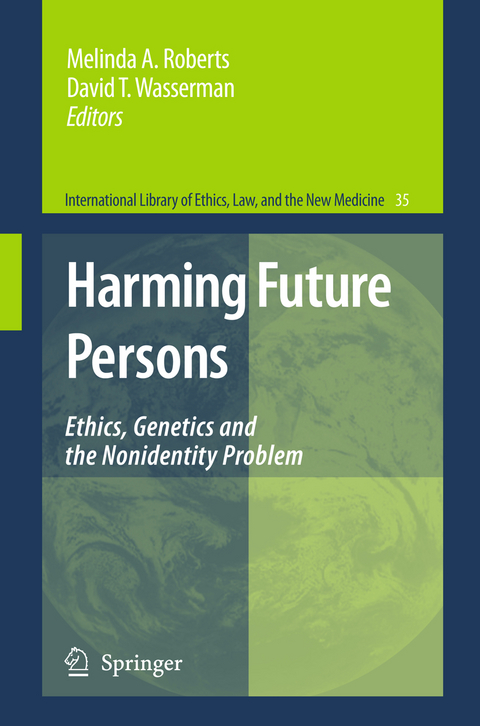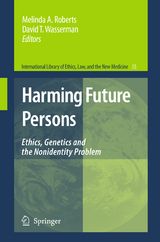Harming Future Persons
Springer-Verlag New York Inc.
978-1-4020-5696-3 (ISBN)
Can Bringing a Person into Existence Harm That Person? Can an Act That Harms No One Be Wrong?.- The Intractability of the Nonidentity Problem.- If Bringing a Badly Off Person into Existence is Wrong, is Not Bringing aWell Off Person into Existence Also Wrong?.- Rights and the Asymmetry Between Creating Good and Bad Lives.- Asymmetries in the Morality of Causing People to Exist.- Must an Act Worse for People be Worse for a Particular Person?.- Who Cares About Identity?.- Do Future Persons Presently Have Alternate Possible Identities?.- Rule Consequentialism and Non-identity.- Is the Argument to “No Harm Done” Correct? Must an Act that Harms a Person Make that Person Worse Off?.- Harming as Causing Harm.- Wrongful Life and Procreative Decisions.- Harming and Procreating.- The Nonidentity Problem and the Two Envelope Problem: When is One Act Better for a Person than Another?.- Is the Morality of Parental Reproductive Choice Special? Can Intentions and Attitudes Make an Act that Harms No One Wrong?.- Reproduction, Partiality, and the Non-identity Problem.- Two Varieties of “Better-For” Judgements.- Harms to Future People and Procreative Intentions.- Is the Person Affecting Approach Objectionable Independent of the Nonidentity Problem?.- Can the Person Affecting Restriction Solve the Problems in Population Ethics?.- What are the Implications of the Nonidentity Problem for Law and Public Policy?.- Implications of the Nonidentity Problem for State Regulation of Reproductive Liberty.- Reparations for U.S. Slavery and Justice Over Time.
| Reihe/Serie | "International Library of Ethics, Law, and the New Medicine " ; 35 |
|---|---|
| Zusatzinfo | VII, 335 p. |
| Verlagsort | New York, NY |
| Sprache | englisch |
| Maße | 155 x 235 mm |
| Themenwelt | Geisteswissenschaften ► Philosophie ► Allgemeines / Lexika |
| Geisteswissenschaften ► Philosophie ► Ethik | |
| Sozialwissenschaften ► Soziologie | |
| ISBN-10 | 1-4020-5696-6 / 1402056966 |
| ISBN-13 | 978-1-4020-5696-3 / 9781402056963 |
| Zustand | Neuware |
| Haben Sie eine Frage zum Produkt? |
aus dem Bereich




